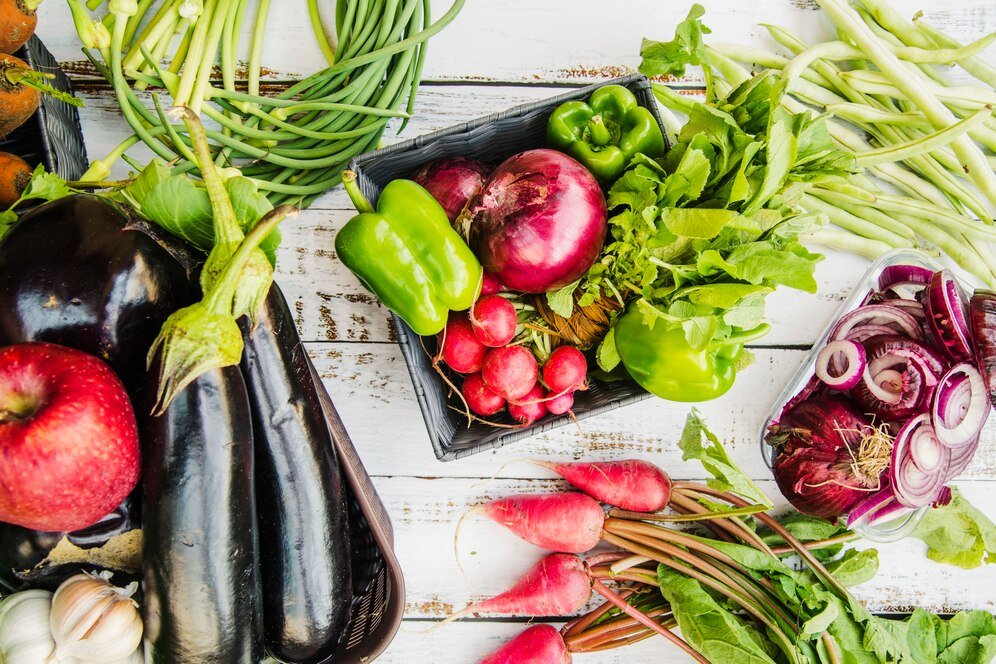Farmers’ markets have long been a staple of local communities, providing a space for farmers to sell fresh, seasonal produce directly to consumers. However, in recent years, these markets have seen a resurgence in popularity. More and more people are choosing to shop at farmers’ markets over traditional grocery stores, not only for the freshness and quality of the products but also for the social, environmental, and economic benefits they offer. But what makes farmers’ markets such an attractive option for shoppers, and how are they changing the way we think about food?
Let’s dive into how farmers’ markets are reshaping the food landscape and why you should consider making them a regular part of your shopping routine.
1. Freshness and Quality You Can Taste
One of the main reasons people flock to farmers’ markets is the freshness of the produce. Unlike grocery stores, which often stock produce that has been shipped across the country or even internationally, farmers’ market vendors typically offer food that has been grown locally and harvested recently. As a result, the produce at farmers’ markets is often much fresher and more flavorful than what you find on supermarket shelves.
Farmers at these markets take pride in offering the best of what’s in season, so you can expect to find fruits and vegetables at their peak of ripeness. Many of these products have been grown without the use of synthetic pesticides and fertilizers, offering a cleaner, more natural option for health-conscious consumers.
2. Supporting Local Farmers and Small Businesses
Farmers’ markets provide a direct connection between consumers and local farmers, which helps strengthen local economies. When you shop at a farmers’ market, you are supporting small-scale farmers who rely on direct sales to sustain their livelihoods. This system allows farmers to earn a fair price for their products, as there are fewer intermediaries involved compared to the traditional supply chain.
Additionally, farmers’ markets often feature small food artisans, bakers, and other local producers, helping them to thrive as well. By shopping at a farmers’ market, you are contributing to the success of your local economy and helping small businesses grow and prosper.
3. A More Sustainable Way to Shop
The environmental benefits of farmers’ markets are significant. Buying locally grown food means less transportation is required to get the food to your table, which helps to reduce the carbon footprint associated with food production and distribution. Transporting food long distances by truck or plane uses fossil fuels and contributes to greenhouse gas emissions. Farmers’ markets minimize these impacts by sourcing produce locally and encouraging sustainable farming practices.
Many farmers’ markets also focus on sustainability by promoting organic and regenerative farming methods. These methods aim to improve soil health, reduce pesticide use, and protect natural resources, making them an environmentally friendly option for those looking to reduce their ecological footprint.
4. Seasonal Eating for a Healthier Diet
Another benefit of shopping at farmers’ markets is the ability to eat seasonally. Farmers’ markets typically offer produce that is in season, which means you can enjoy fruits and vegetables at their peak of flavor and nutrition. Seasonal eating encourages variety in your diet and can help reduce your reliance on processed foods.
Eating seasonally also allows you to connect more deeply with the rhythms of nature and the local environment. It can inspire creativity in the kitchen as you discover new ways to prepare fruits and vegetables that are fresh and in abundance. Plus, you’re likely to be consuming food that hasn’t been over-processed or preserved, so it retains more of its nutritional value.
5. Building a Sense of Community
Farmers’ markets are more than just places to buy food—they are community hubs where people come together to support local farmers, engage with their neighbors, and learn about where their food comes from. Visiting a farmers’ market can be a social experience, as you chat with the vendors and other shoppers about the food, farming practices, and recipes.
Farmers’ markets are also great places to learn about food education and sustainability. Many markets host cooking demonstrations, offer gardening advice, or hold events that educate the community on healthy eating and environmental practices. In this way, farmers’ markets serve as a space for knowledge sharing and community building, making them more than just a shopping destination.
6. Connecting with the People Who Grow Your Food
One of the unique aspects of shopping at a farmers’ market is the opportunity to meet and interact with the people who grow your food. Unlike grocery stores, where the supply chain can be complex and opaque, farmers’ markets allow you to build a personal relationship with the farmers. You can ask them about their growing practices, learn about the challenges they face, and even discuss how best to prepare and store their produce.
This connection fosters a greater sense of trust and transparency, as you can see firsthand the care and dedication that goes into producing your food. It also encourages a deeper appreciation for where your food comes from and the people who work hard to grow it.
7. A Fun, Family-Friendly Experience
Farmers’ markets are often lively, fun places to spend a Saturday morning or afternoon. With their vibrant atmosphere, live music, and variety of products, they offer more than just a place to shop—they create a festive environment that’s perfect for family outings. Children can learn about food, farming, and sustainability in a hands-on way, helping to build a foundation for healthier eating habits in the future.
Many farmers’ markets also host special events, such as cooking classes, food tastings, or craft fairs, making them a destination for entertainment as well as shopping. These events encourage families to spend quality time together while supporting local businesses and sustainable practices.
8. Supporting Ethical and Humane Farming Practices
When you shop at farmers’ markets, you have the opportunity to support ethical farming practices, including humane treatment of animals. Many small-scale, local farms prioritize animal welfare, offering their animals more space to roam and ensuring that they are raised in a healthy, humane environment.
Unlike large industrial farms, which may use factory-farming methods that prioritize efficiency over animal welfare, many farmers who sell at markets adhere to higher standards of animal care. By choosing to buy meat, dairy, or eggs from these farmers, you are helping to support a more ethical and humane approach to farming.
Conclusion: Why Farmers’ Markets Matter
Farmers’ markets are changing the way we think about food. By offering fresh, local, and sustainable products, they provide a healthier and more eco-friendly alternative to supermarket shopping. They also foster a stronger sense of community and support local economies, helping to create a more resilient and sustainable food system.
If you haven’t already, it’s time to explore your local farmers’ market and see for yourself the benefits it has to offer. From supporting small businesses to eating healthier and more sustainably, farmers’ markets are a vital part of the future of food.








